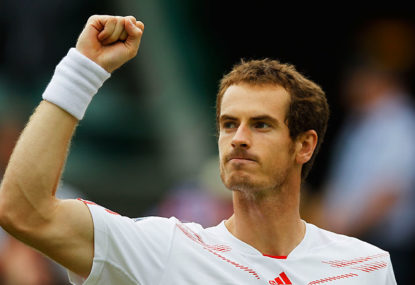Demon slays the King: de Minaur savours 'once in a lifetime' moment after knocking off Nadal on clay
Rafael Nadal has hailed the brilliance of Alex de Minaur, calling him "a great player" after the Australian forced the Spanish legend to say…

This week the final of the Davis Cup is to be played between hosts Belgium and Great Britain. Sadly, players and fans often deride this historic competition, however this year we’ve seen just how important the Davis Cup is to tennis, especially in light of the terror alerts that threaten to overshadow the event.
Some question the relevance of the Davis Cup and ask if it should become a biannual event instead of being played annually.
There is also the question of if tennis is even a team sport. After all, most players play singles week in, week out.
Then there is the unpleasant undercurrent that playing Davis Cup is an interruption to making hay while the sun shines. Money talks, and much louder than any feelings of warmth and patriotism that comes from playing for your country.
While these sentiments certainly exist, the Davis and Fed Cups are important features of the rich tapestry that makes up tennis history.
While progress is necessary, there is nothing wrong with maintaining traditions. As such, Davis Cup tennis should remain as it is and serve as a reminder that representing your country is the highest honour in sport, not the size of your bank account.
Although this week’s event is being overshadowed by threats of terrorism, the passion with which the final will be played will be undeniable.
Say whatever you want about Andy Murray, the Scot is passionate. Murray has been in the unenviable position of having to play the World Tour Finals and then prepare for the Davis Cup final in a week. The switch from hard court to clay is swift but Murray stands on the precipice of adding the Davis Cup to his two Grand Slams and Olympic Gold. Does anyone think he won’t be trying his guts out this weekend?
And don’t jump to the conclusion that his singles rubbers are in the bag. Murray has had some good results against Belgium’s world number 16, baby-faced David Goffin, but this Davis Cup final presents an entirely different set of challenges, most notably the heightened security surrounding the event.
The team that handles this the best may well decide if Belgium will win their first Davis Cup, or if Great Britain will regain the cup for the first time since 1936.
What may be most telling for the Belgians is if their home supporters are able to lift them over the line, particularly as some British supporters will likely decide against making the journey to Ghent.
At the time of writing the final is still going ahead as planned, with the Brits arriving a day later than originally expected. Their changed travel plans from the Eurostar to a private jet may end up beneficial to preparations.
Furthermore, this is not the first time the Davis Cup has been threatened with disruption. As noted on Twitter, the 2009 first round tie between Sweden and Israel was played to a closed house, while protestors stood outside protesting the escalating conflict in Gaza.
Wasn't there a DC tie that was played in front of an empty crowd, to avoid all potential threats? Believe it was SWE-ISR.
— Joanna (@Janie5Jones) November 23, 2015
Interestingly, this is not the first time Sweden played a tie without spectators. In 1975, two years after Augusto Pinochet’s military coup, the Swedes played their tie against Chile in an empty stadium.
These are the only two times Davis Cup ties have been played without fans.
At this point there are no plans to lock fans out of the final, but were they to do so the Belgians would lose their home-crowd advantage, although not their advantage of playing on clay.
We live in an increasingly uncertain world, which continues to raise important questions in relation to how we want to live our lives. What is the role of sport? Can sport really unite? Can sport help to build strong bonds among various groups in society?
In this week’s Tennis Podcast, Catherine Whitaker made the pertinent point that running sporting events in these uncertain times is important and is not a sign of disrespect to the terrible events occurring around the globe; the passion and enjoyment that we get from sport can unite us.
She also pointed out that the result often isn’t important, what is important is the event itself. This may turn out to be true this weekend. Perhaps the legacy of this year’s Davis Cup final will be in the running of the event and the fans who turn out for it.
This year the Davis Cup has delivered many passionate and hard-fought ties. It has united players in the common goal of representing their country for something more than personal glory.
A cynic would point out that players have to play some Davis Cup and Fed Cup ties in order to qualify for Olympic selection, and with Rio just around the corner now is the time for top players to make sure they’re there.
But this rule should not be used to further argue against the Davis Cup being an annual event. It’s only reasonable that an Olympic sport has this requirement. The cynicism lies in if tennis players were allowed to just rock up to the Olympics once every four years without playing some other competitions for their country.
The Davis Cup is both filled with history and continues to make history. Its place on the tennis calendar should remain firmly as it is.
May the best team win this weekend’s Davis Cup final, and may it be played in an atmosphere that transports spectators away from the uncertain times we live in and to a place that unites society, rather than divides it.